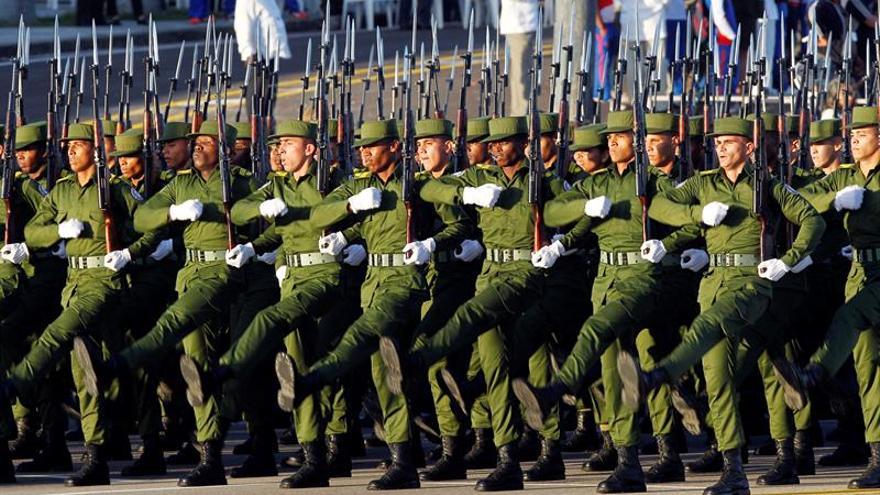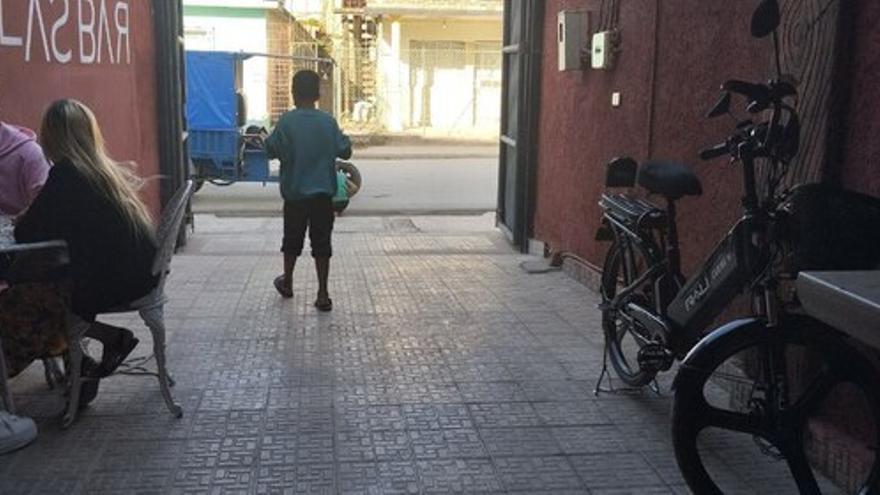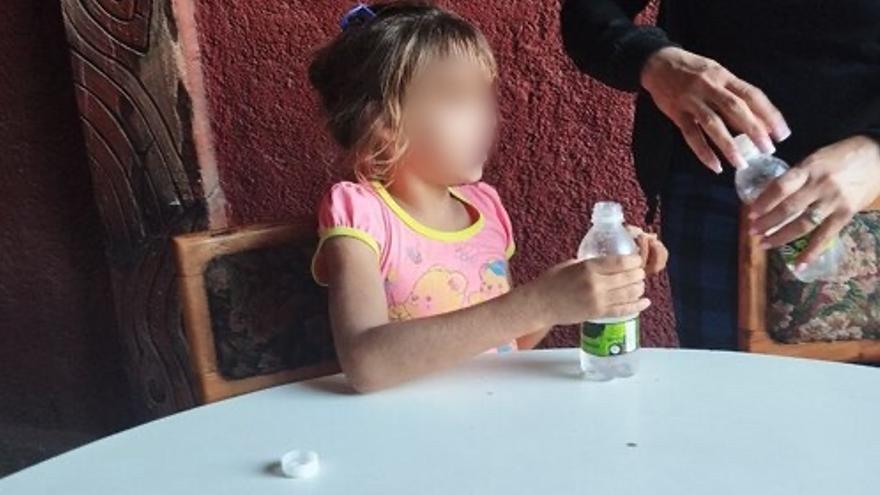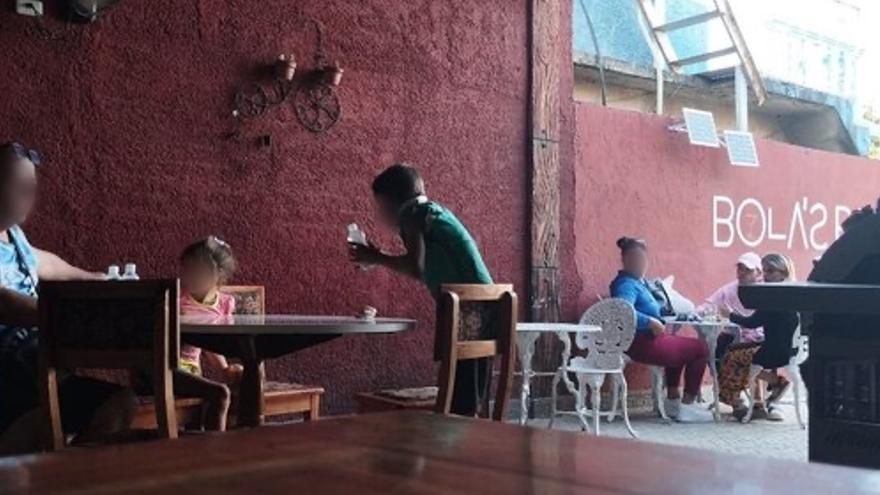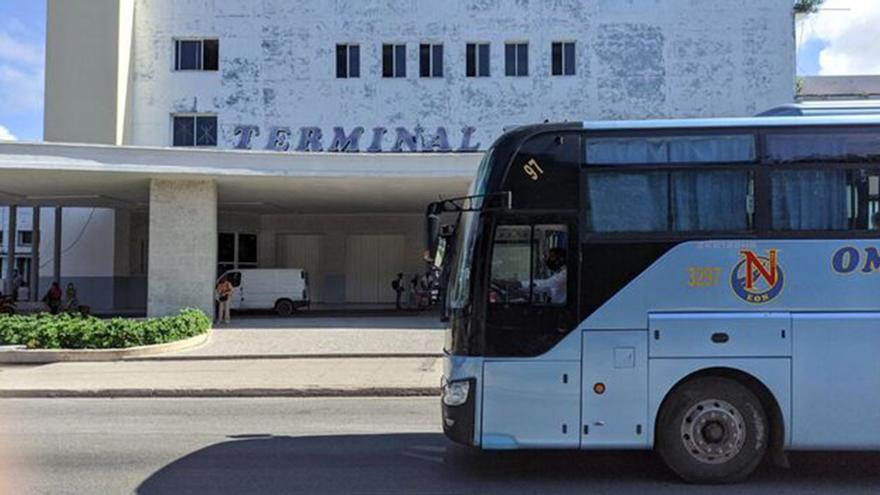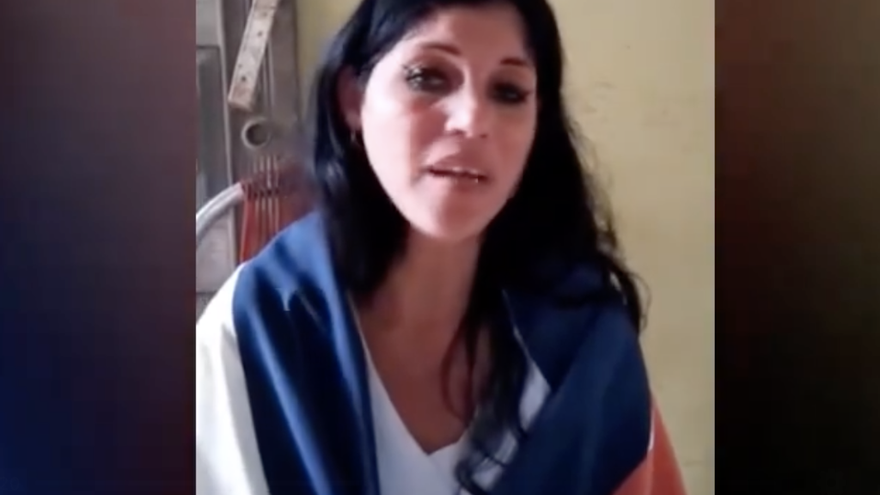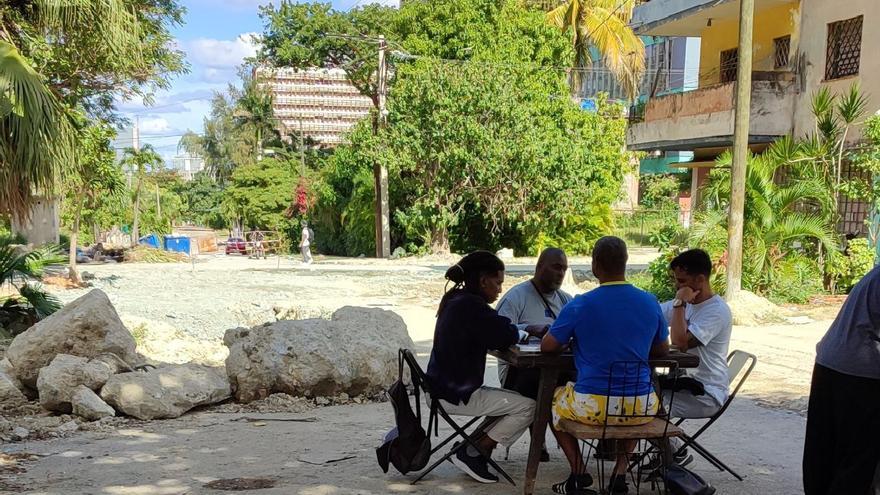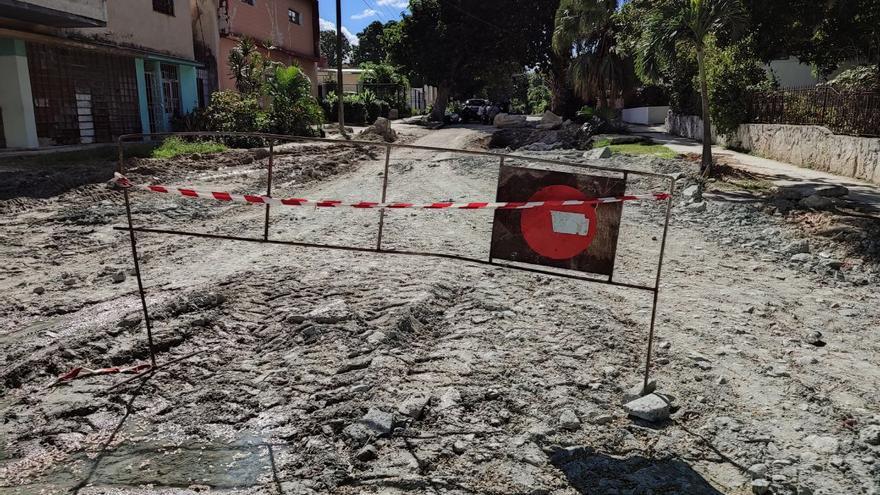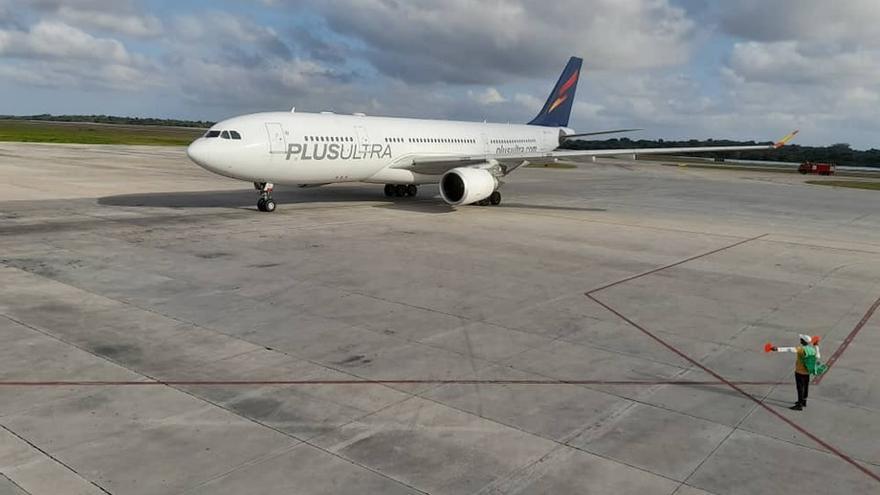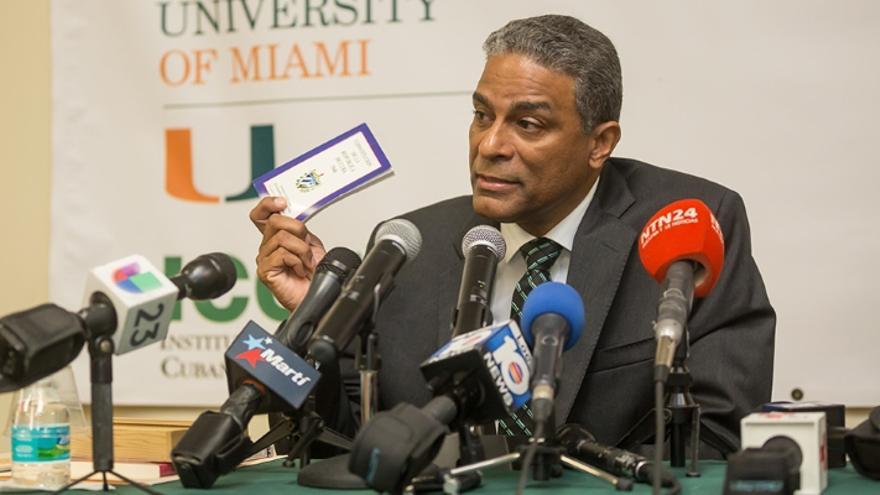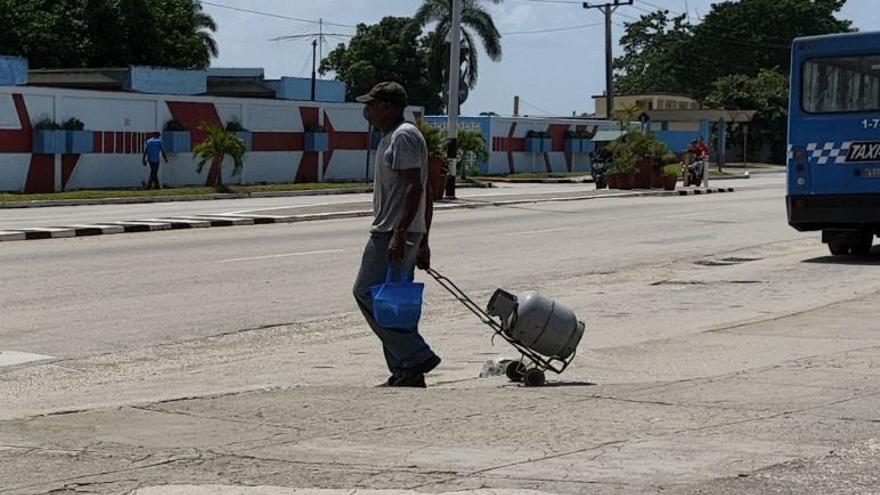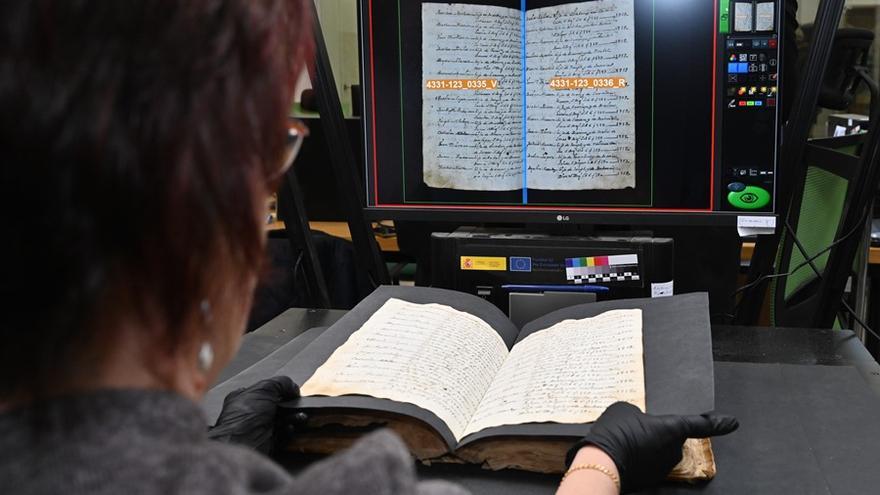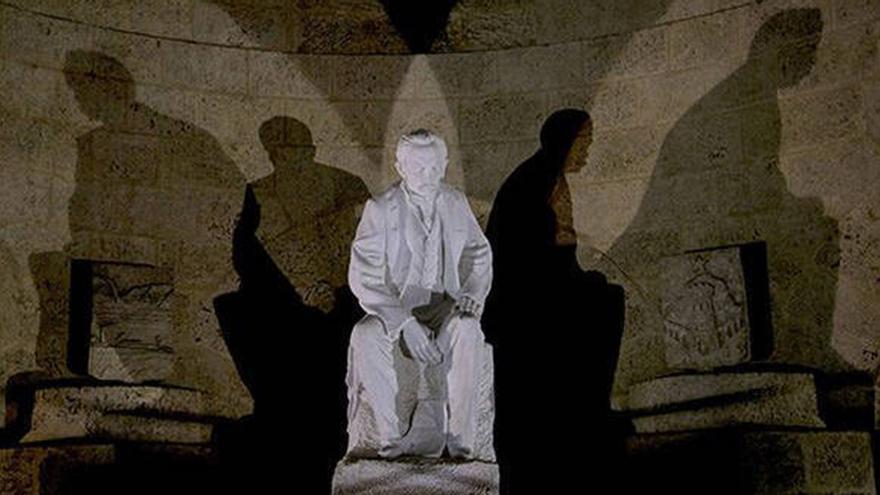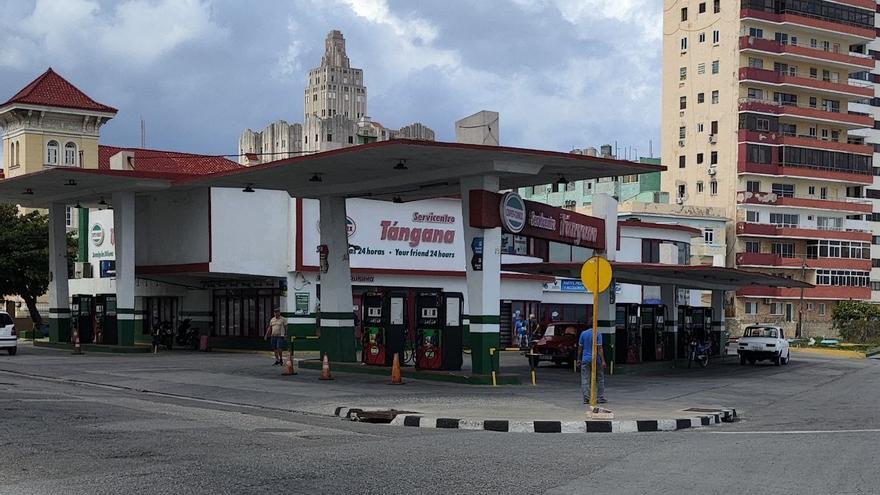
![]() 14ymedio, Madrid, 9 January 2024 — Fuel on the Island will quintuple in price starting February 1st. But Cubans, always thinking ahead, are more afraid of the dangers to come. These include even larger price increases on the black market and shortages at service centers, especially for those paying in Cuban pesos (CUP) rather than hard currency (MLC).
14ymedio, Madrid, 9 January 2024 — Fuel on the Island will quintuple in price starting February 1st. But Cubans, always thinking ahead, are more afraid of the dangers to come. These include even larger price increases on the black market and shortages at service centers, especially for those paying in Cuban pesos (CUP) rather than hard currency (MLC).
Vladimir Regueiro Ale, Vicente da la O Levy and Tania Danay Vives Alfonso — the respective heads of the ministries of Finance, Prices, Energy and Mines, and the deputy CFO of Cimex — sat down for a television interview on Monday to explain some of the most widely feared changes that were announced as part of a series of economic reform measures. These include increases in the prices of fuel, electricity and natural gas. In the case of fuel, the price will rise from 25 to 132 pesos, an increase of 528%.
Similarly, the price of premium gasoline will go from 30 pesos a liter to 156 (or 1.30 dollars at the official exchange rate) while premium diesel will go from the current price of 27.5 pesos to 150 (1.25 dollars). The price has yet to reach 200 pesos, a source with Cuba Petroleo told 14ymedio last week, but, continue reading
Inflation in the month of February is certain. There will be a 428% increase in the wholesale price of regular gasoline, which will impact other prices and fees
Increases in retail prices will be less significant. Regular gas will go from the current price of 16.46 pesos to 24.30 pesos. Meanwhile the price of premium will go from 17.37 to 26.00 pesos and diesel from 15.12 to 28.00. The overall effect will be an increase in February’s consumer price index (CPI), says economist Pedro Monreal on his X account. “Inflation in the month of February is certain. There will be a 428% increase in the wholesale price of regular gasoline, which will impact other prices and fees. Until now, higher fuel costs have never had an impact on the CPI,” he points out.
However, the factor that most worries the public it seems, judging from comments made on information websites and social media, is not so much the high prices themselves but their potential impacts. The government has based its decision on the need to increase foreign reserves in order to replenish supplies. To achieve this, it is creating a network of twenty-eight service stations that will only accept payment in dollars.
The idea has little novelty. On the contrary, it has brought to the minds of citizens the moment when, during the Special Period — after the collapse of the Soviet Union and the loss of its subsidies to Cuba — dollar stores and their national equivalent, the CUC (Cuban Convertible Peso), were created, which marked the border between those who had access to that currency and could buy better products and those who did not have it and had to settle for the undersuppied stores in pesos. The situation was later replicated with the shops in freely convertible currency (MLC), and now it reaches the gas stations.
“Having in the same gas station the sale in foreign currency and national currency will only generate greater corruption and enrichment than the current one, which is already enough, among those who work in stations and the supply chain, because they will easily say that they have no fuel in CUP to force people to pay in foreign currency,” writes a reader of Cubadebate.
“I can imagine the dialogue,” another jokes.
“There is no fuel for CUP.”
“I don’t have MLC on my card. How can I do it?”
“Easy, give me 270 for each MLC and I’ll give you my card.”
The problem is that the clerk then pays with his card in CUP because the user has no idea if there is fuel in CUP and no one finds out.”
Vives Alfonso explained that the new gas stations in dollars are not just for tourists but for anyone who has a means of payment regardless of nationality. The accepted cards will be Visa, Mastercard, MIR (a Russian card), prepaid issued by Bandec, the ICE card, the Traveler card and the new Classic card, which will be purposely issued by the exchange houses soon. In no case will cash payments be accepted.
The Minister of Energy and Mines explained that so far Cubans are subsidizing tourists, since when they arrive in the country they buy 120 pesos with a dollar, but gasoline is at the official exchange of 24 pesos for a dollar. “There we can see the subsidy to tourism, to the foreigner, to that person who pays for gasoline at 1.30 dollars and here pays for it for at 30 pesos,” he said.
De la O Levy gave several data about the situation of fuel on the Island and the cost of acquiring it. In 2023, 203,000 tons of gasoline were imported (almost twice as much as in 2021), but the need is 360,000. “The enemy has blocked our access to fuel and there is no doubt about that,” he said. “A relentless persecution of fuel, ships, crossings, partners and allies has been applied… day after day,” he insisted.
Cuba requires about 1.8 billion dollars to be able to cover its annual needs, but last year it was only able to cover a third: 600 million dollars for 609,000 tons
The minister said that the majority of gasoline goes to the private sector, compared to diesel, which mostly goes to industries and transport, and whose imports were also small. Cuba requires about 1.8 billion dollars to be able to cover the annual needs, but last year it was only able to cover a third: 600 million dollars for 609,000 tons.
The new measures, he said, will “gradually achieve a stable supply,” although he let drop the worst fear by stating that “a good provision in both chains of service centers cannot be guaranteed from the first day of implementation.”
One of the sectors most affected by the changes is transport, which will have to reflect the increases by increasing costs, although for the moment no details have been offered for discussion. In the case of the industry, the increases are planned and will be supported with the budgets, but on a new episode of State TV’s Round Table program the officials warned of new announcements about the means of transport without a date in sight, “where it will be possible to explain rate by rate per service.”
Both private and state centers will be able to obtain the fuel at wholesale prices, they said.
In the coming days there will be campaigns for preparing workers and informing users in the service centers, and “there will be signage that shows the customer how to easily acquire the fuel by any of these means of payment. If there is a problem with any of them, there are other ways; at no time will the service be paralyzed because there is no connection or because it is not possible at that time to make a payment,” said the Cimex official.
Translated by Regina Anavy
____________
COLLABORATE WITH OUR WORK: The 14ymedio team is committed to practicing serious journalism that reflects Cuba’s reality in all its depth. Thank you for joining us on this long journey. We invite you to continue supporting us by becoming a member of 14ymedio now. Together we can continue transforming journalism in Cuba.



